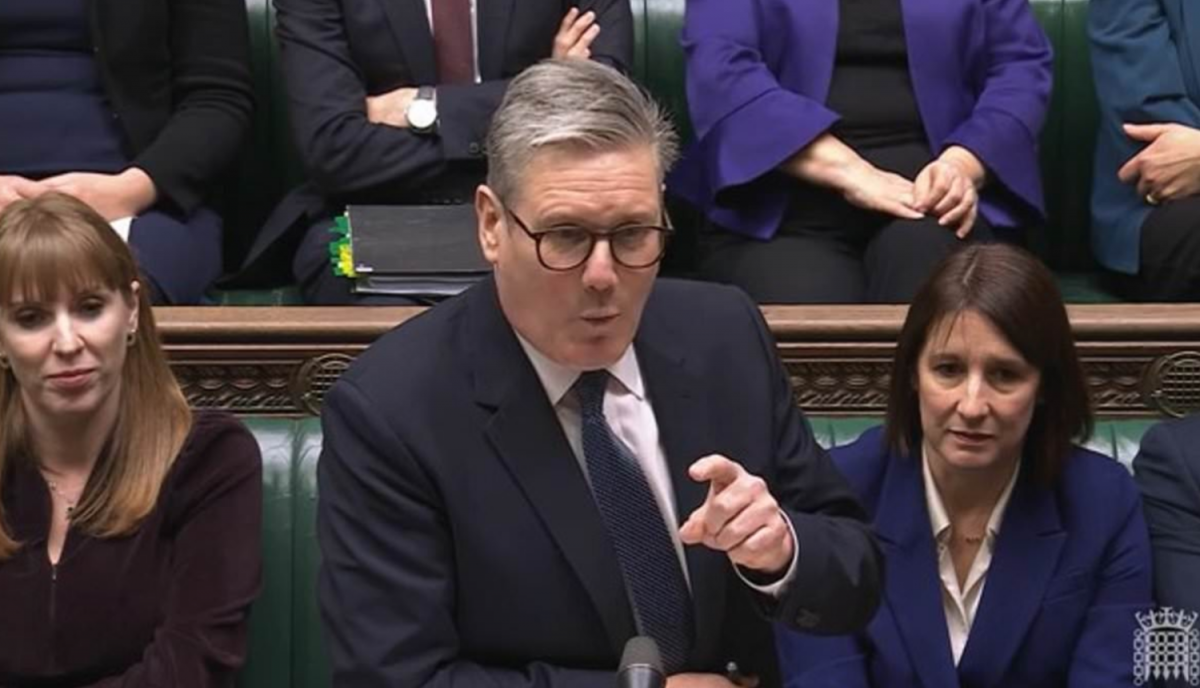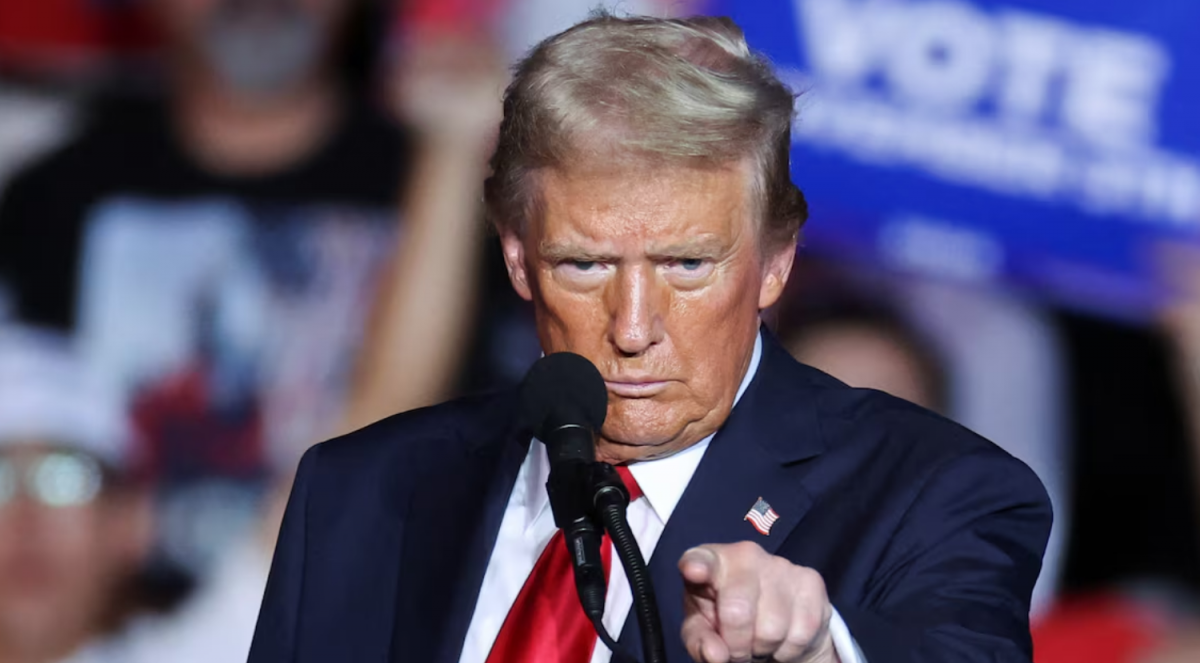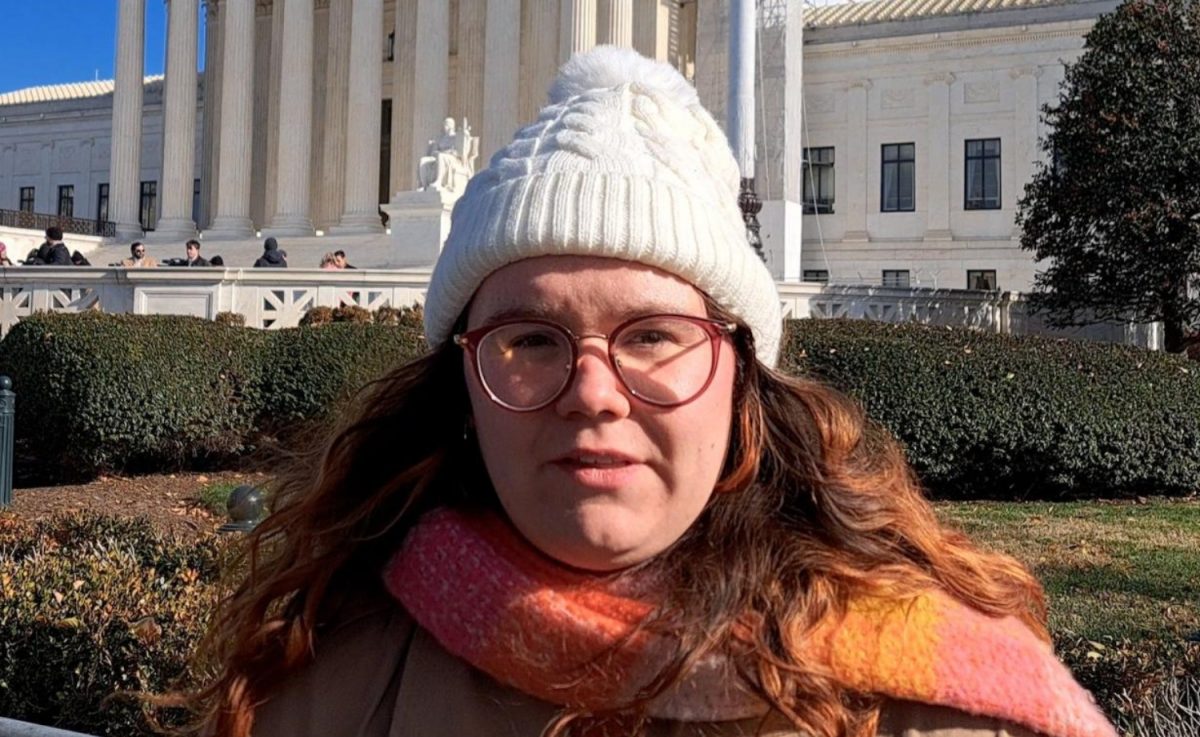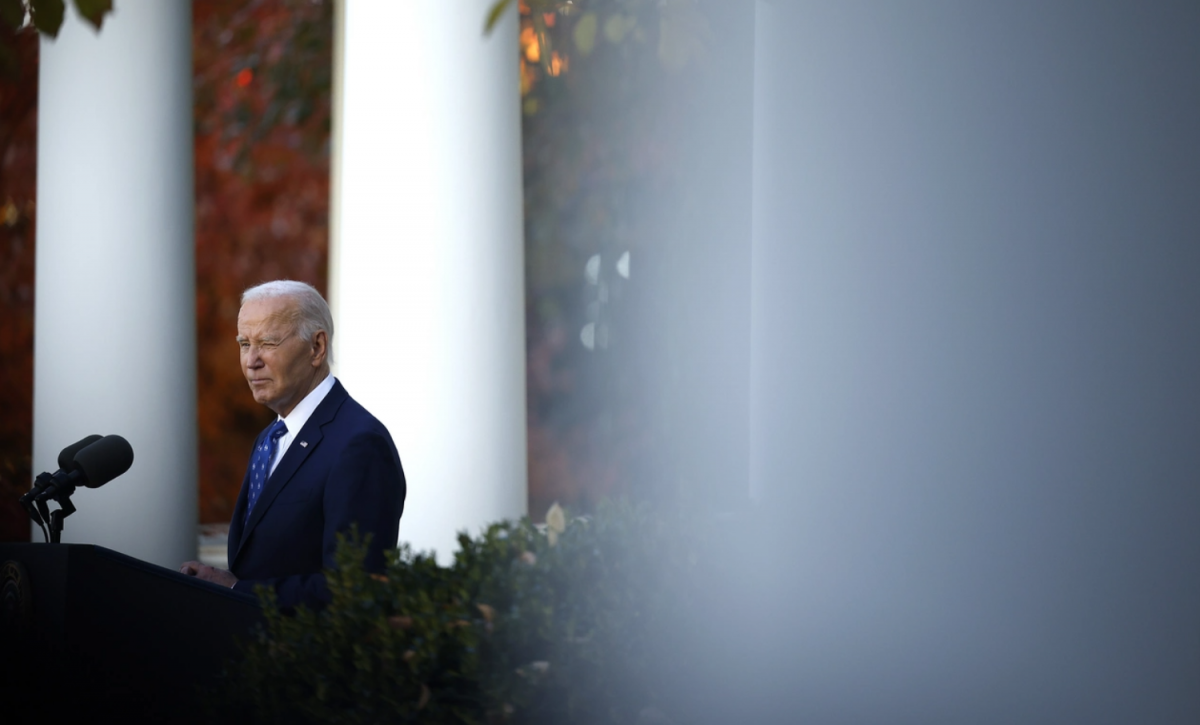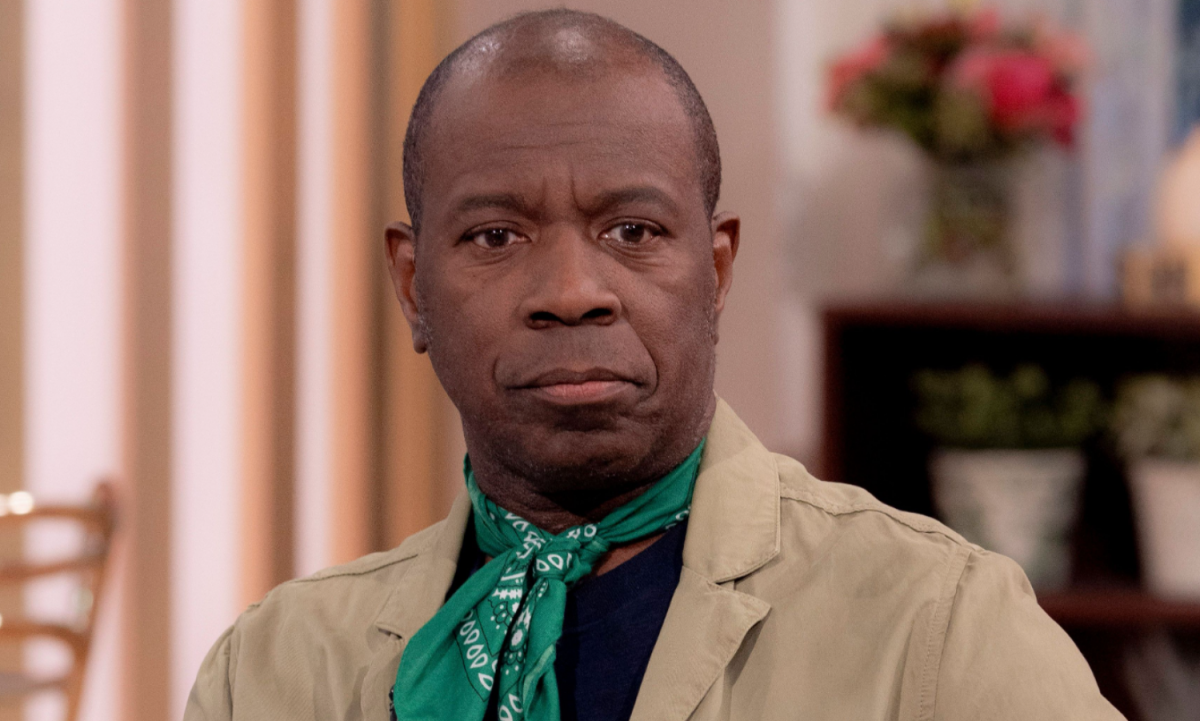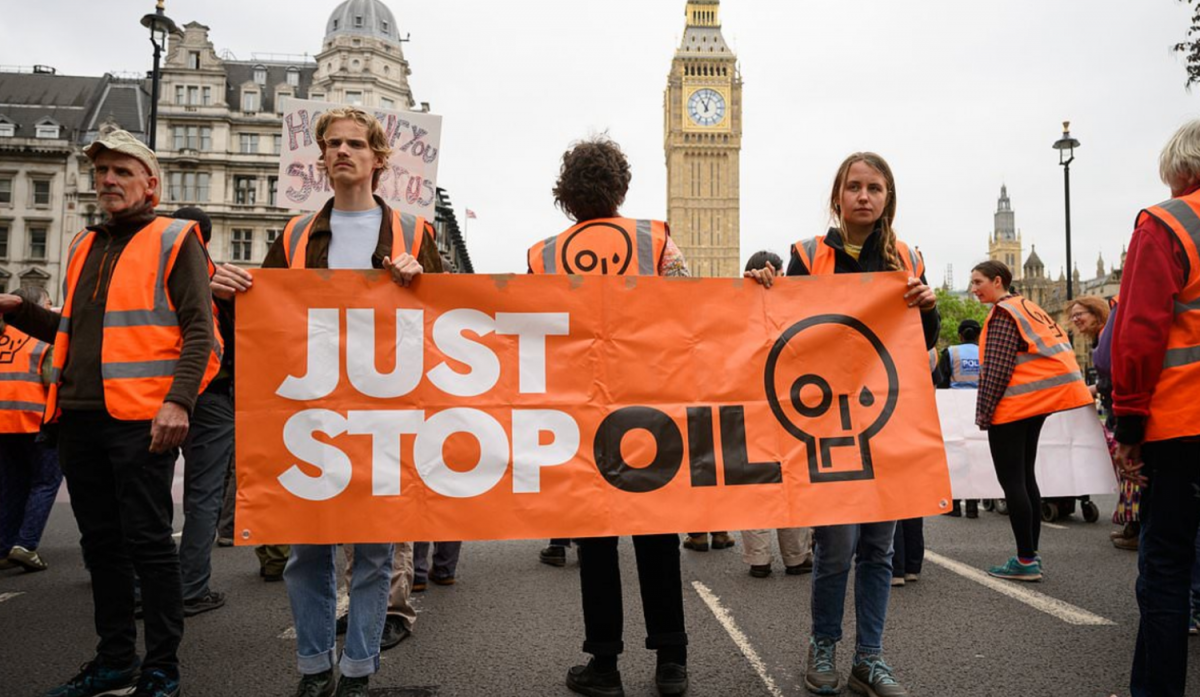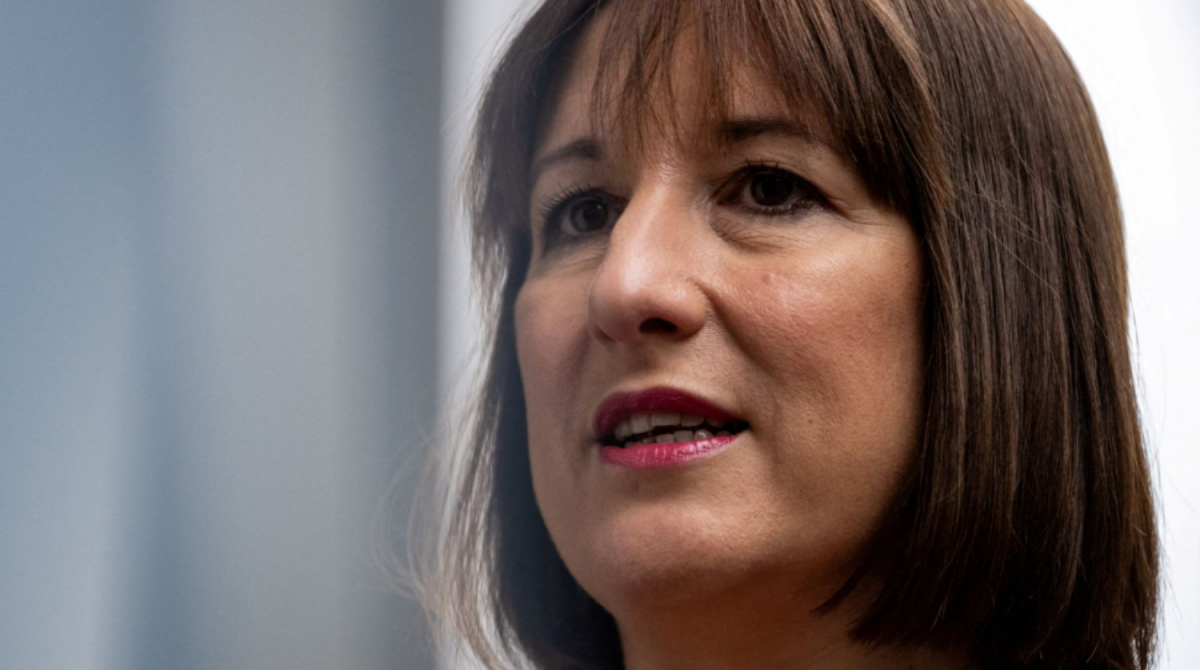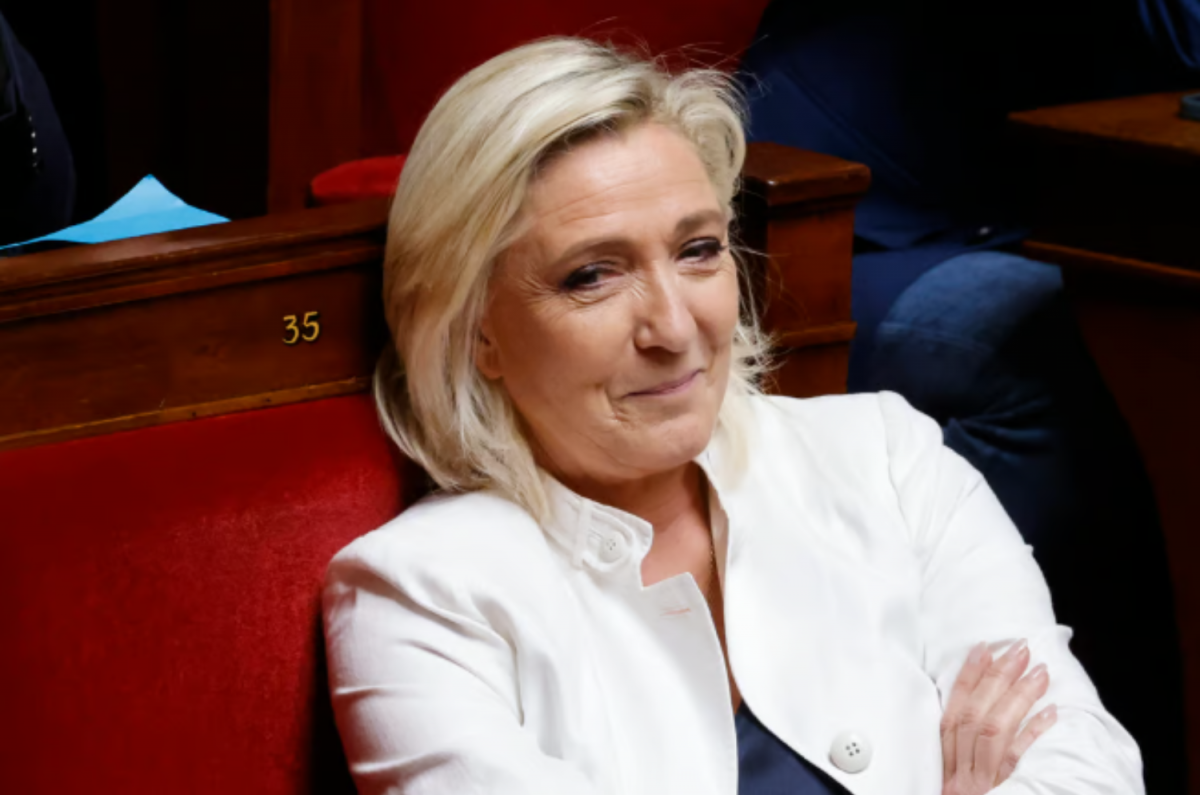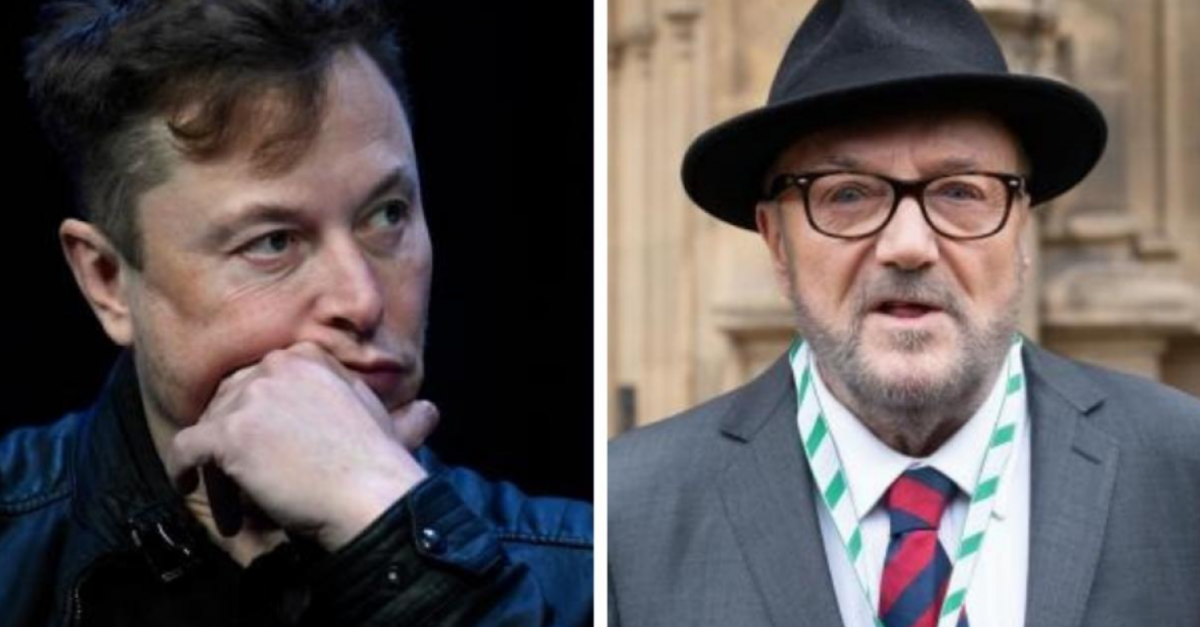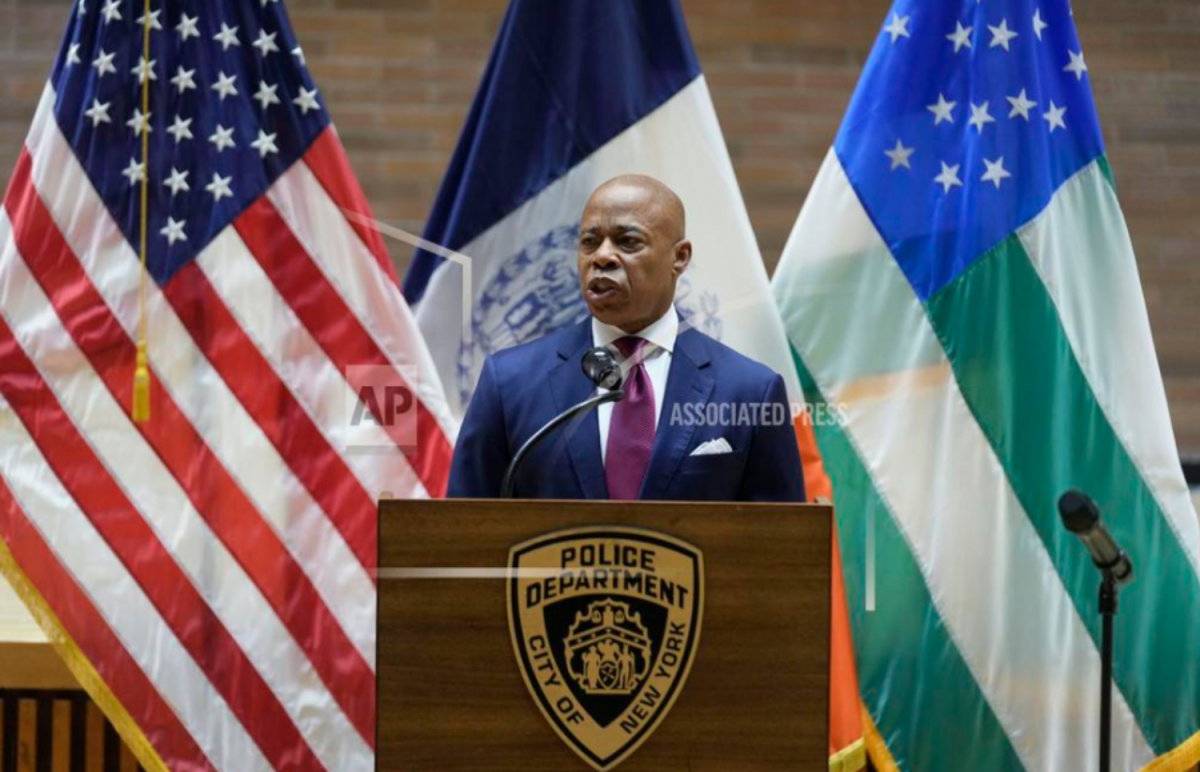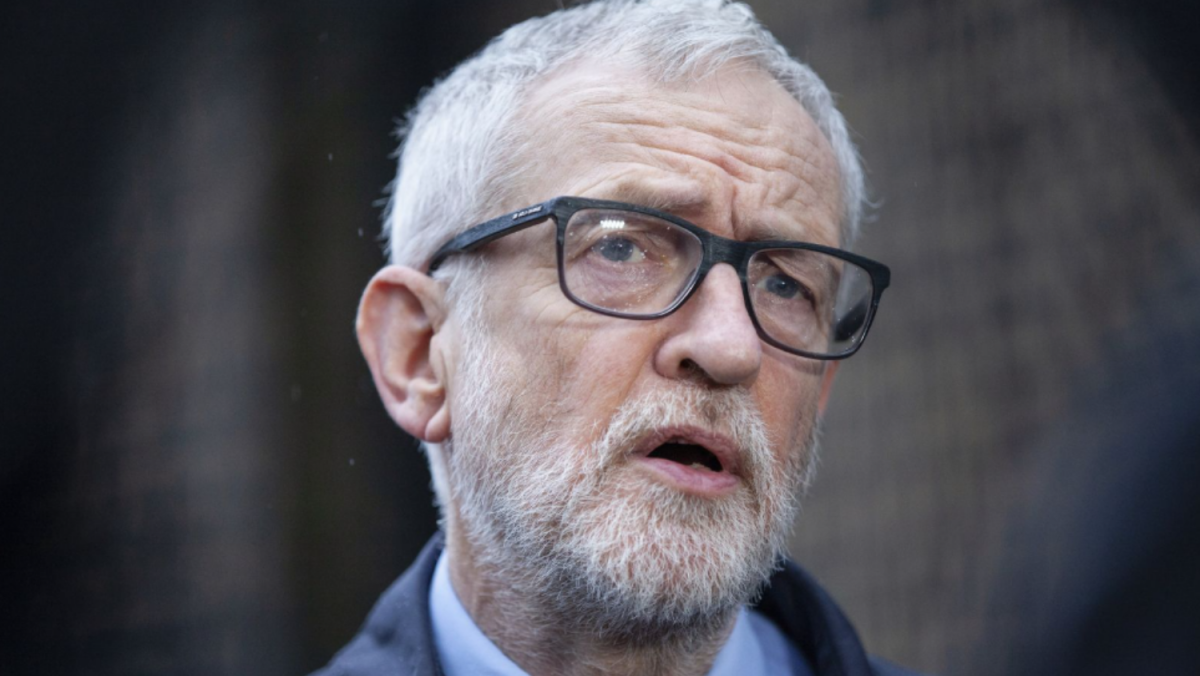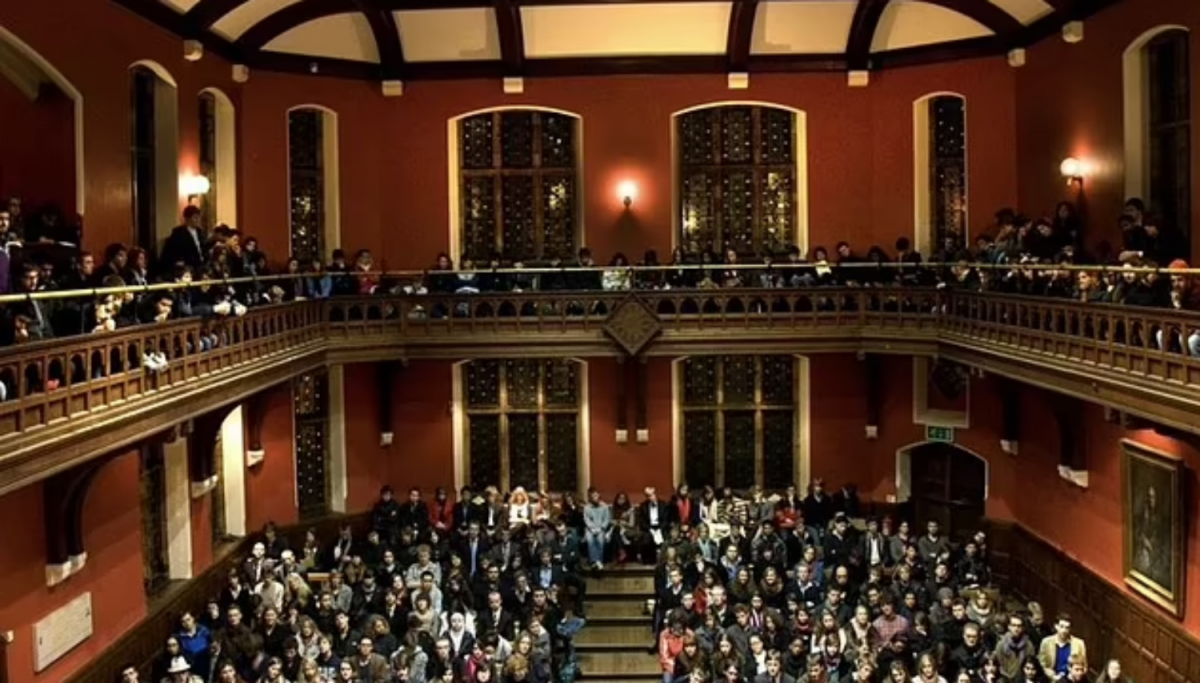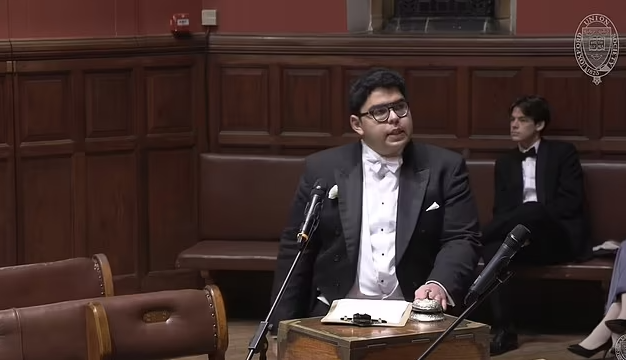-
Posts
10,746 -
Joined
-
Last visited
Content Type
Events
Forums
Downloads
Quizzes
Gallery
Blogs
Everything posted by Social Media
-

Amnesty International "It's a Genocide in Gaza"
Social Media replied to SomNaNa555's topic in The War in Israel
A post with double quotes from 2 different posters has been removed @stevenl 7. Do not quote more than three multiple nested quotes. Only quote the person you are replying to, and only quote the relevant section that you are discussing. -
Amazon founder Jeff Bezos has expressed optimism about Donald Trump’s presidency, commending the president-elect’s approach to leadership and his focus on reducing regulatory burdens. Speaking at the New York Times DealBook Summit, Bezos remarked on Trump’s potential to drive economic growth and tackle the nation’s challenges through a pro-growth agenda. “I am very optimistic that President Trump has a good chance of succeeding,” Bezos said during the event. “He seems to have a lot of energy around reducing regulation. We do have too much regulation in this country.” Bezos emphasized that solving America’s national debt requires making it a smaller percentage of GDP, underscoring the importance of fostering economic expansion. “We need a growth orientation in this country,” he added. Bezos reflected on America’s unique position in the global landscape, attributing much of its success to robust risk capital and its dominance as an innovation hub. “We are the luckiest country in the world,” he declared. “People are confused by why all the big tech companies are here compared to elsewhere in the world, but the biggest reason is that we’ve got better risk capital. You can raise $50 million of seed capital to do something that only has a 10 percent chance of working. That’s crazy.” The billionaire also pointed to the prevalence of English as a significant advantage. “We speak English, and that’s turning into the lingua franca of the world,” he said. However, he noted that regulatory burdens remain a challenge for businesses in the United States. Bezos’s remarks come in the wake of controversy surrounding the *Washington Post*, which he owns. The paper notably declined to endorse a candidate in the 2016 presidential election, breaking from its tradition of supporting Democrats, including Joe Biden in the past. Addressing this decision, Bezos stated, “You can’t do the wrong thing because you’re worried about bad PR or whatever you want to call it. This was the right decision. I’m very proud of the decision.” However, he acknowledged that his ownership could be seen as unconventional, adding, “I’m a terrible owner of the Post from the point of view of appearance.” His comments were echoed by Ken Griffin, billionaire founder of the hedge fund Citadel, who also spoke at the summit. Griffin praised the post-election environment, saying, “America’s open for business again.” He criticized the previous administration’s regulatory approach, arguing that it stifled growth. “The endless amount of regulatory and litigation-induced paralysis from the Biden administration is over,” Griffin said, adding that while tariffs are a concern, they are “not even close to the biggest issue.” Griffin also singled out Lina Khan, chair of the Federal Trade Commission, accusing her of significantly undermining American productivity through aggressive regulatory actions. “The role she played in reducing and eroding American productivity was profound,” he asserted. Both Bezos and Griffin conveyed a sense of renewed opportunity in the country’s economic landscape, highlighting the importance of reducing red tape and fostering an environment conducive to growth and innovation. Based on a report by Daily Telegraph 2024-12-06
-
For over a year now, Canadians have witnessed a disturbing series of events that demand attention. Since the horrific terrorist attacks carried out by Hamas on October 7 last year, supporters of the group have openly expressed views and taken actions that should have sparked outrage across the nation. Masked demonstrators in Montreal openly admit that they are part of Hamas and Hezbollah. “We are proudly saying that we are the resistance of Palestine and Lebanon in Montreal.” This silence has grave implications. History has shown that unchecked antisemitism and extremism lead to the erosion of societal cohesion and the persecution of minority groups. The acceptance—or even passive tolerance—of actions and ideologies that undermine the principles of peace and coexistence is a clear warning sign of societal decay. Yet, the prevailing narrative discourages confronting such dangers, as Canadians have been made to believe that doing so might contradict their progressive values. Despite these challenges, the stakes could not be higher. If Canadians hope to preserve the values and freedoms that define their country, they must overcome the paralysis of guilt and fear. They must find the courage to speak out against hatred and extremism, regardless of the potential backlash. The silence that has characterized much of the response to these recent events cannot be allowed to persist. Without action, the cherished ideals and opportunities that have long defined Canada may be lost for future generations. Based on a report by National Post 2024-12-06
-
Keir Starmer has come under mounting pressure to issue an apology to Members of Parliament after incorrectly suggesting that Boris Johnson has a criminal conviction. The controversy arose during heated exchanges in the House of Commons, as Starmer sought to defend his appointment of Louise Haigh to the Cabinet, despite knowing about her prior conviction for fraud. The clash was ignited when Conservative leader Kemi Badenoch questioned Starmer’s decision, stating that the public deserved clarity on why he "knowingly appointed a convicted fraudster to be his transport secretary. What was he thinking?" Badenoch further remarked, "The country needs conviction politicians, not politicians with convictions." In response, Starmer took aim at Boris Johnson and Rishi Sunak, claiming, "I gently remind her that two of her predecessors had convictions for breaking the Covid rules." This comment referred to the £50 fixed penalty notices issued to Johnson and Sunak for attending a lockdown gathering in Downing Street. However, these notices are not legally regarded as criminal convictions, a distinction Starmer’s critics were quick to highlight. Boris Johnson accused Starmer of misleading the Commons, calling for him to "correct the record." He described the accusation as a resigning offense, urging the Prime Minister to withdraw the statement immediately. Former Solicitor General Sir Michael Ellis joined the chorus of criticism, emphasizing that, as a former Director of Public Prosecutions, Starmer should understand the legal distinction. "A former DPP really ought to know that fixed penalty notices are not criminal convictions," Ellis argued. "By that token, he has just suggested that millions of people handed parking tickets now have criminal convictions, which is plainly nonsense. It is factually wrong, and he should correct the record." After the debate, a spokesperson for Badenoch reiterated that fixed penalty notices do not constitute criminal convictions. Meanwhile, a Labour source dismissed the criticism, signaling Starmer would not retract his statement. The source asserted, "If the Conservatives want to have a row about the extent of their criminality while in Downing Street, that’s fine by us. The fact is two of the leader of the opposition’s predecessors were found guilty of breaking the law with partying in Downing Street while telling everyone else to follow the rules." Adding to the controversy was the resignation of Louise Haigh last week. Haigh stepped down after details of her spent conviction for fraud—falsely reporting the loss of a work phone—emerged. Downing Street has not disputed her claim that Starmer was informed about her offense four years earlier. However, Starmer has remained tight-lipped about his reasons for appointing her, simply stating that she "was right to resign when further information came forward." When pressed on the nature of this additional information or the full extent of his prior knowledge, Starmer accused Badenoch of "obsessing with Westminster issues." Badenoch, however, hit back, accusing Starmer of perpetrating "a fraud on the British people" by appointing someone convicted of fraud and allowing her to approve significant pay rises for trade union allies. As the fallout continues, the dispute has become a flashpoint, highlighting the intense scrutiny and political brinkmanship in Westminster. Both sides remain entrenched, with Starmer facing calls for accountability and the Conservatives leveraging the incident to question his judgment and leadership. Based on a report by Daily Mail 2024-12-06
-
Israel has presented an updated proposal to Hamas, aimed at securing the release of some of the 100 remaining hostages and initiating a ceasefire in Gaza, according to two Israeli officials. This development comes as diplomatic efforts intensify, with input from various players, including U.S. President-elect Donald Trump, who is pushing for an immediate resolution. Israeli officials expressed hope that recent shifts in the geopolitical landscape could provide the momentum needed to break the three-month-long deadlock in negotiations. Specifically, they highlighted the potential killing of Hamas leader Yahya Sinwar, the stabilization of a ceasefire in Lebanon, and the influence of President-elect Trump as pivotal factors that might reopen dialogue. Although the new framework for the deal does not significantly differ from the proposal negotiated in August, which ultimately stalled, Israeli officials emphasized their focus on implementing the first phase of the agreement with some modifications. Encouragingly, Hamas has reportedly shown a greater willingness to exhibit flexibility and consider a partial implementation of the deal. A Trump adviser told Axios that the President-elect backs the deal if it aligns with Israel’s interests, emphasizing the urgency of the situation given the hostages’ precarious safety. "Trump wants such a deal to be implemented as soon as possible and without delay before January 20," the adviser stated. To bolster these efforts, Trump’s Middle East envoy, Steve Witkoff, visited both Qatar and Israel in late November, engaging in talks with Israeli Prime Minister Benjamin Netanyahu and Qatari Prime Minister Sheikh Mohammed bin Abdulrahman al-Thani. This aligns with Qatar’s renewed involvement as a key mediator after briefly stepping back from the role. Speaking to Sky News, the Qatari Prime Minister affirmed his contact with Trump’s advisers regarding the ongoing negotiations. "We heard from his team that they want this to be resolved now ... we hope his message will be delivered to both parties. We are trying our best," he said. These remarks underscore Qatar’s pivotal role in facilitating dialogue between Israel and Hamas during a critical juncture in the peace efforts. As the January 20 inauguration date approaches, the international community watches closely to see if this combination of diplomatic pressure and regional cooperation can achieve a breakthrough in resolving the hostages' plight and easing tensions in Gaza. Based on a report by AXIOS 2024-12-06
-
As Donald Trump prepared to take office, he faced a Middle East teetering on the brink of chaos. In just six weeks, this volatile region would become his administration’s responsibility, adding to the myriad global challenges already demanding his attention. While much focus was placed on the U.S.-China rivalry and military maneuvers in the Indo-Pacific, it was clear that the complexities of the Middle East would dominate Trump’s early days in the Pentagon. The situation underscored the importance of advanced military technologies, particularly drone and counter-drone systems and robust air defenses. These tools, honed in the post-9/11 era, were critical for addressing threats in the region. Yet, this emphasis raised concerns about the potential dilution of American military readiness in other key areas, such as the Indo-Pacific. Navy Adm. Samuel Paparo recently warned about the strain this could place on U.S. forces stationed near China, highlighting the global implications of Middle Eastern instability. Trump’s administration included several veterans of the Global War on Terror, whose perspectives were shaped by decades of conflict. Their experiences, as well as their skepticism of interventionist foreign policies, were expected to influence—but not dictate—the administration’s approach. Task and Purpose aptly described this dynamic, noting how figures like Pete Hegseth, Tulsi Gabbard, and JD Vance have voiced distrust of the interventionist ideologies that spurred the War on Terror. Balancing Trump’s "America First" isolationism with the urgent realities of the Middle East presented a formidable challenge. The region was marked by several flashpoints that year. In Syria, renewed fighting destabilized Russia while bolstering Turkey, with the U.S. maintaining a small troop presence and denying involvement in clashes near Aleppo. In Yemen, Houthi attacks disrupted global shipping, drawing attention to U.S. Navy stockpile vulnerabilities. Pentagon official Bill LaPlante admitted these missile advancements were unexpectedly sophisticated. Meanwhile, the war in Gaza strained U.S.-Israel relations. The aftermath of the Oct. 7 massacre and subsequent conflict tested weapons accountability and led to a fragile ceasefire with Lebanon. Iran’s nuclear program continued to advance, paired with aggressive drone and missile attacks that, while largely intercepted, signaled the regime’s growing confidence. The U.S. faced direct losses, too, with three soldiers killed in Jordan. Retaliatory strikes targeted 85 sites across Iraq and Syria, demonstrating America’s readiness to respond forcefully. Trump, never one to shy away from bold declarations, issued a stark warning regarding hostages taken by Hamas: “There will be ALL HELL TO PAY,” he threatened, leaving open questions about when or how he might act. Sen. Lindsey Graham encapsulated Trump’s approach, saying, “If you are a bad guy and you are not afraid of Trump, then you are also a dumb guy. Bad and dumb guys don’t last long.” This rhetoric previewed a term likely characterized by policy decisions broadcast through social media and immediate, high-stakes responses to crises. Despite these challenges, some in Washington cautioned against focusing too heavily on the Middle East at the expense of broader strategic priorities. Ian Byrne of Beacon Global Strategies dismissed the notion of prioritizing one region over another, emphasizing that U.S. interests often overlap across regions like the Middle East and the Indo-Pacific. For Trump, inheriting a Middle East in turmoil was not just a test of leadership but a potential preview of the years to come—a balancing act between urgent conflicts and enduring strategic goals. Based on a report by AXIOS 2024-12-06
-
Prisha Mosley, a 26-year-old mother from Michigan, stood before a crowd outside the U.S. Supreme Court, sharing her deeply personal story. The Court was hearing arguments on whether transgender healthcare should be accessible to minors—a topic stirring both passion and controversy among the throngs of demonstrators waving banners and chanting slogans. Among the voices that day, Prisha’s account carried a somber weight. "Detransitioner Prisha Mosley speaks out against gender medical harms." At the time of her transition, Prisha felt validated by her doctors, who she said quickly categorized her as transgender without exploring other possible causes for her feelings. “Okay, your body is wrong. Let’s give you medicine for it,” was their response, she recalled. While her parents supported the treatment then, they now feel misled. “They were lied to by the activist doctors who were treating me,” she said. Prisha’s story was one of many voices outside the court that day, where demonstrators were starkly divided. On one side, rainbow flags and signs demanding trans rights rippled in the cold air. On the other, protesters called for caution, holding banners reading “stop the harm” and chanting through sound systems, “leave kids alone.” Metal railings and a significant police presence kept the two camps apart, but the ideological chasm was palpable. Looking back, Prisha expressed a sense of betrayal. “I really thought that my doctors were my saviours and my heroes, and I trusted them. But through growing up and facing the effects of gender-destroying harm, I lost my health and found myself completely alone,” she said. Her transition began with a prescription for Depo-Provera at age 16 to halt her periods, followed by testosterone treatments at 17, which brought what she described as “almost immediate” and “permanent” changes. Now, having detransitioned, she depends on progesterone and estrogen supplements to regulate her hormones. The double mastectomy, or “top surgery,” performed when Prisha was 18, marked a critical turning point. The procedure left her with enduring complications, which became more pronounced after her pregnancy. “I wasn’t warned what could happen,” she said. Her nipples, which were removed, reshaped, and repositioned during the surgery, now block milk from flowing. “They were sewn into the wrong spot so that my chest could look like a boy’s chest.” Prisha’s decision to detransition came two and a half years ago after meeting her boyfriend. Now 24, she reflects on her journey with a mix of pain and resilience, speaking out in the hope that her story will serve as a cautionary tale for others. Based on a report by Daily Telegraph 2024-12-06
-
President Joe Biden’s inner circle is reportedly debating the unprecedented possibility of issuing preemptive pardons to current and former officials who could be targeted by a second Trump administration. Senior Democrats familiar with these discussions describe heightened concerns about potential investigations and indictments against those who have been critical of Donald Trump. The urgency around this matter has increased following Trump’s announcement that Kash Patel, a staunch ally and vocal critic of Trump’s adversaries, would lead the FBI. Patel has openly pledged to pursue those who opposed Trump, intensifying fears within the Biden administration about a potential wave of reprisals. According to insiders, White House officials are divided over the implications of granting blanket pardons to individuals who have not been accused of crimes. While some view the move as a protective measure, others worry it could inadvertently validate Trump’s narrative of corruption and misconduct. Additionally, there are concerns that some individuals offered pardons may reject them, complicating the strategy. The discussions reportedly encompass a wide range of potential pardon recipients, including both current officeholders and former officials who have drawn the ire of Trump and his allies. Among those believed to be under consideration are figures like Senator-elect Adam Schiff, a member of Congress’ January 6 Committee, and former Republican Representative Liz Cheney. Trump has previously called for members of the committee, including Cheney, to face legal consequences, declaring, “Cheney should go to Jail along with the rest of the Unselect Committee!” Dr. Anthony Fauci, the former director of the National Institute of Allergy and Infectious Diseases, is also said to be a possible candidate for a pardon. Fauci became a frequent target of conservative criticism during the COVID-19 pandemic, making him a potential focus of renewed scrutiny under a Trump administration. The deliberations are being led by White House counsel Ed Siskel and include other senior aides such as Chief of Staff Jeff Zients. While Biden has not yet been involved in the broader discussions, his recent decision to grant an expansive pardon to his son Hunter Biden—covering an 11-year period—illustrates the administration’s acute awareness of the political risks tied to potential prosecutions. Historically, end-of-administration pardons have been contentious, with past examples such as President George H.W. Bush’s pardon of Caspar Weinberger and President Bill Clinton’s pardon of Marc Rich sparking debates. However, the current situation, fueled by fears of Trump-led retribution, appears far more fraught. These deliberations highlight the profound anxieties among high-ranking Democrats about Trump’s anticipated return to power and the lengths to which his administration might go in targeting political adversaries. Whether or not Biden’s administration proceeds with preemptive pardons remains to be seen, but the discussions themselves underscore the extraordinary stakes of the current political landscape. Based on a report by Politico 2024-12-06
-
Clive Myrie, a prominent BBC presenter, has issued a public apology for failing to properly declare over £150,000 earned from external engagements. The payments were linked to 28 events undertaken outside his BBC duties, for which he did not submit the required documentation. In a statement shared on the social media platform X, Myrie expressed regret over the oversight, acknowledging administrative errors that led to non-compliance with the BBC’s rules. "An apology — I’ve had several administrative issues, and I didn’t fill out the correct paperwork for some of my external public events, so they haven’t been published until now," he wrote. Myrie further pledged to avoid such lapses in the future by stepping back from paid external appearances. “I’ve told the BBC I won’t be taking part in any more paid external events in the foreseeable future, beyond a handful of pre-existing commitments, so that this doesn’t happen again. My sincere apologies. Thanks, Clive,” he concluded. The BBC implemented a register in 2021 to track paid external engagements by senior leaders and on-air journalism staff. This system aims to maintain transparency and uphold impartiality standards. Declarations recently made by Myrie, some dating back to 2021, revealed that he earned over £10,000 for each of five undeclared events. Among the highlighted events were his role as a chair at GreenTalks Live, organized by the Isle of Man Energy and Sustainability Centre, and a keynote speech at a Dutch bank ING dinner at the Gherkin skyscraper in London. Both appearances reportedly commanded fees exceeding £10,000. The BBC’s newly released register for the third quarter of this year included retrospective entries for events not previously disclosed. In response, the corporation reaffirmed its commitment to maintaining impartiality and reminded staff of their obligations. A spokesperson stated, “A number of events that were not submitted to the register in previous quarters have been retrospectively published today.” The broadcaster also emphasized the seriousness of non-compliance, warning that disciplinary action could result from future breaches. “Where non-compliance has occurred, robust management action has been taken,” the statement added. As part of ongoing efforts to refine its policies, the BBC announced plans to update its guidelines. These changes will clarify the permissible volume of paid external activities for staff, ensuring greater adherence to its standards moving forward. Based on a report by Times & Sunday Times 2024-12-06
-
The British Army could face depletion within six months to a year in the event of a large-scale war, highlighting the urgent need to rebuild the nation’s reserve forces, according to Al Carns, the UK veterans minister and a serving reservist. Speaking at a conference hosted by the Royal United Services Institute (RUSI) in London, Carns underscored the critical role of reserve forces in bolstering the army’s capacity during prolonged conflicts. Drawing comparisons with the ongoing war in Ukraine, Carns pointed to the staggering casualty rates faced by Russian forces, which average around 1,500 soldiers killed or injured daily. He explained that Russia’s ability to sustain such losses is integral to its war strategy, emphasizing that Britain must prepare to respond to similar challenges by expanding its pool of trained reserves. "In a war of scale—not a limited intervention, but one similar to Ukraine—our army, as part of a broader multinational coalition, would be expended in six months to a year," Carns stated. He stressed the importance of building depth and mass within the UK’s military forces, particularly through reservists who can be rapidly mobilized during crises. Military doctrine often highlights that while wars may be initiated by professional armies, they are ultimately concluded with the involvement of civilians, such as reservists and volunteers. Carns, a former Royal Marine colonel, noted that Russia is already moving onto its third army in Ukraine, underscoring the necessity for the UK to strengthen its capacity to generate forces quickly. “This doesn’t mean we need a bigger standing army, but it does mean we need the ability to generate depth and mass rapidly in the event of a crisis,” Carns explained. “The reserves are critical, absolutely central, to that process. Without them, we cannot generate mass or meet the myriad of defence tasks required.” Over the decades, Britain’s reserve forces have suffered from chronic underinvestment. Since the end of the Cold War, limited defence budgets have prioritized the full-time army, Royal Navy, and Royal Air Force, leaving the reserves undermanned, undertrained, and poorly equipped. Essential items such as body armour, weapons, and vehicles are in short supply. In addition to the active reserves, which consist of individuals who train regularly, Carns highlighted the importance of the “strategic reserve.” This category includes former service personnel who remain eligible for mobilization after leaving regular service. During the Cold War, the Ministry of Defence (MoD) maintained a robust system to track and train this pool annually, ensuring readiness. However, these practices were abandoned after the Cold War, leaving gaps in preparedness. Today, the MoD lacks comprehensive knowledge of who remains in the strategic reserve, where they are located, or whether they would return to service during a crisis. Addressing these deficiencies would require significant investment and a renewed public outreach campaign to emphasize the importance of national service. “There is a requirement across government to remind people that freedom is not free,” Carns said. He expressed hope that an upcoming defence review, set to be released in the spring, would pave the way for a renewed focus on the reserves. “We need to catch up with NATO allies and place greater emphasis on reserves,” he stated. “We need to grow our active reserve—trained volunteers who can respond at short notice. It’s equally important to understand the composition and location of our strategic reserve and to expand it.” Carns called for a comprehensive “new deal for our reserves” to ensure Britain’s military remains prepared for the demands of modern warfare. Based on a report by Sky News 2024-12-06
-
Environmental activist group Just Stop Oil has announced plans for a prolonged protest targeting Parliament this spring, pledging to blockade Westminster for weeks. The group, known for its disruptive tactics, aims to gather "thousands and thousands" of supporters to pressure the government into halting fossil fuel extraction and usage by 2030. In a bold strategy, Just Stop Oil intends to overwhelm the legal system by orchestrating mass arrests to strain police resources and court capacities. An insider suggested that similar disruptions might extend to high-profile events like Wimbledon in 2025. The group is calling on its backers to financially support the operation, with monthly donations ranging from £8 to £500 to cover training, transportation, and supplies, including tools like super glue and D-locks. Critics have condemned the plans, labeling them extremist and a threat to public safety. Robert Jenrick, shadow justice spokesman, stated, “The country cannot be brought to heel by militant protesters. The Government must ensure law-breakers are served swift justice.” Tory MP Richard Holden echoed these sentiments, emphasizing the importance of enforcing laws to prevent protests that "challenge democracy, cost the economy millions, and disrupt daily life." Security expert Anthony Glees from the University of Buckingham noted growing public frustration, saying, “Ordinary British people are sick to the back teeth of having their lives disrupted by organised groups of fanatics.” Despite the criticism, Just Stop Oil insists that its actions are rooted in non-violence. A spokesperson for the group declared, “It’s time to reclaim Parliament from the moneyed interests that have bought our politicians... non-violence is the core of what we do so we won’t be putting MPs in danger in any way.” The announcement was made during a six-hour event in Birmingham, where activists read poems written by jailed members and shared "stories of resilience." The group, which has seen many of its leaders incarcerated recently, appears to be rallying its supporters for a renewed wave of civil disobedience. The planned protests underscore the growing tension between environmental activists and authorities, as Just Stop Oil prepares for what could become one of its most significant campaigns to date. Based on a report by Daily Mail 2024-12-06
-
A troll post has been removed. Repeat @Albo and it will be more than the post.
-

Puppet master Blinken calls for more cannon fodder
Social Media replied to Albo's topic in The War in Ukraine
Topic locked. The link provided in the OP in unapproved and a questionable source. A questionable source exhibits one or more of the following: extreme bias, consistent promotion of propaganda/conspiracies, poor or no sourcing to credible information, a complete lack of transparency, and/or is fake news. //CLOSED// -
The Duke and Duchess of Sussex have made a significant charitable contribution, donating $250,000 through their Archewell Foundation to Ashley Biden’s Women’s Wellness (Spa)ce. This initiative, led by the daughter of U.S. President Joe Biden, focuses on providing support to women impacted by trauma. The donation, recorded in Archewell’s 2023 tax filings, marks the largest single grant the foundation has made to a charitable cause that year. This substantial contribution aligns with Prince Harry and Meghan’s commitment to aiding women in need, a cause said to deeply resonate with the couple. The grant reflects their broader philanthropic efforts, as Archewell distributed a total of $1.3 million to various charitable initiatives in 2023. The tax filings also revealed that Archewell received $5.3 million in grants during the year, with the majority coming from a single $5 million donation, believed to have originated from Fidelity Charitable. Fidelity Charitable had previously supported the foundation with a $1 million contribution in 2022. The financial disclosures highlighted the foundation’s operational expenses, including $997,285 allocated to salaries and just over $1 million spent on legal fees, event costs, and travel. Despite these expenses, the foundation’s donations reflect a consistent focus on mental health and wellness. Notable contributions included $130,000 to Humanity Crew, a mental health organization addressing trauma among displaced children and families, and $50,000 to support mental health services for aid workers in Israel and Gaza. An additional $80,000 was directed toward mental health aid for workers in Turkey and Syria. This high-profile grant to Ashley Biden’s initiative comes amid speculation regarding the Sussexes’ ties to the Biden administration. The administration previously supported Prince Harry by declining to release his immigration records during a civil case in New York. Additionally, the couple has appeared to share political sympathies with President Biden. In 2020, ahead of the U.S. presidential election, they released a video urging voters to “reject hate speech, misinformation, and online negativity,” a move interpreted by many as tacit support for Biden’s candidacy over Donald Trump. Meghan referred to the election as the “most important of our lifetime,” further fueling speculation about her political aspirations. In recent years, the couple has adopted a more subdued approach to political discourse, particularly in light of the upcoming 2024 U.S. election. Their earlier statements led to public remarks from Trump, who described himself as “no fan” of Meghan. By focusing their efforts on philanthropic endeavors like the Women’s Wellness (Spa)ce, Harry and Meghan continue to champion causes they are passionate about while navigating their complex public and political profiles. The Women’s Wellness (Spa)ce stands to benefit significantly from this generous donation, which underscores the Sussexes’ dedication to supporting mental health initiatives and empowering women. Through their Archewell Foundation, Harry and Meghan are leveraging their platform to make meaningful contributions to global well-being. Based on a report by Daily Telegraph 2024-12-05
-
Chancellor Rachel Reeves has admitted that businesses will face significant challenges in absorbing the planned increase in employers’ national insurance contributions. Speaking at The Yorkshire Post's Great Northern Conference in Hull, Reeves acknowledged the difficulties posed by the rise, which will see employers’ contributions climb to 15% starting April 2025. “I’m not going to pretend that it’s going to be easy for businesses, or indeed for charities or local authorities, to absorb, especially the national insurance increase,” Reeves said. However, she defended the decision, emphasizing Labour's commitment during the general election not to raise taxes on working individuals. “We made a commitment... that we wouldn’t increase taxes on working people, because over the last few years, it has been working people that have had to bear the brunt of tax increases.” Reeves pointed to Labour’s campaign pledge not to increase income tax, VAT, or national insurance for employees, a promise the party has adhered to. However, critics, including the Conservative Party, argue that Labour breached its manifesto promise by not differentiating between employee and employer contributions. Reeves also justified the tax increases, stating, “That has meant we have had to increase taxes, particularly national insurance, but also some of the taxes on the wealthiest in society.” The announcement has sparked concern among business leaders. Celebrity chef Tom Kerridge, who previously endorsed Labour during the general election, warned that the hike could have dire consequences for the hospitality sector. Speaking on Politics Hub with Sophy Ridge, Kerridge estimated that the increase would cost businesses like his an additional £800 to £850 per employee annually. “There will be a huge amount of closures,” Kerridge cautioned. “We’ve already got high-profile names and Michelin-star restaurants that have decided to shut their doors. And when that starts to happen, it does begin to filter down.” The rise in national insurance is also expected to impact charities and local councils, adding further strain on sectors already grappling with financial pressures. During her speech, Reeves refrained from ruling out the possibility of future tax increases, despite making such a promise last week at the Confederation of British Industry’s annual conference. She explained that while the government has set its spending framework for the coming years, unforeseen economic shocks could necessitate adjustments. “I have now set the envelope for government spending for the next few years, so I’m not going to need to come back and top that up, either with more borrowing or more taxes,” Reeves said. However, she added, “I can’t write five years’ worth of budgets in just five months — we don’t know what might happen in the future in terms of shocks to the economy.” Reeves assured businesses that this budget represents a fresh start, stating, “We have wiped the slate clean. We will never have to do a budget like this again.” The national insurance increase and broader fiscal measures have ignited a heated debate over their impact on businesses, charities, and the wider economy, leaving many questioning the balance between fiscal responsibility and economic resilience. Based on a report by Sky News 2024-12-05
-

France Faces Unprecedented Crisis as Le Pen Targets Macron
Social Media posted a topic in World News
France’s political landscape is quickley unraveling as far-right leader Marine Le Pen edges closer to achieving her long-held ambitions. With the government on the brink of collapse, President Emmanuel Macron finds himself in her crosshairs, as political turmoil engulfs the European Union’s second-largest country. Marine Le Pen, leader of the National Rally party, has been accused by critics of sowing chaos to dismantle Macron’s leadership. Recent events seem to bolster these claims. Prime Minister Michel Barnier, who took office just three months ago, appears poised to lose a no-confidence vote, marking the shortest tenure for a French prime minister in the modern republic’s history. Since Barnier’s appointment in September, Le Pen has gained significant influence. Her party has earned institutional respect and a say in policymaking, long-standing goals for the far-right leader. However, these victories have not satisfied her; Le Pen is clearly aiming higher. As the prime minister’s government falters, she has set her sights on forcing Macron into an unprecedented resignation. At the center of the crisis is the government’s proposed budget, a contentious plan to inject €60 billion into the state’s finances through tax increases and spending cuts. Le Pen’s refusal to support the budget has played a pivotal role in destabilizing the administration. Despite numerous concessions by Barnier to address her concerns, she consistently shifted her demands, frustrating negotiations. “Le Pen’s conditions were constantly changing,” said a conservative member of Barnier’s government, who wished to remain anonymous. “Sunday, she gave a 17th different version of what her conditions were. The prime minister responded Monday, and once again, that wasn’t enough.” In an interview with *La Tribune*, Le Pen hinted that her support might hinge on adjustments to drug prices or pensions. However, her demands evolved again, suggesting her reluctance to reach a genuine agreement. This pattern of behavior has led many to suspect that her true goal is not merely to influence policy but to provoke a broader political crisis. The collapse of Barnier’s government would undoubtedly plunge France into deeper instability. Such an outcome would leave the country vulnerable to financial turmoil and political uncertainty. Analysts argue this chaos serves Le Pen’s interests, as it might create an opportunity for her to further challenge Macron’s authority. “When you see that such consequential efforts were made but were deemed insufficient, you have to wonder if all that wasn’t just a pretense,” said a cabinet member. Le Pen’s ultimate ambition appears to be the presidency itself. Having unsuccessfully run for the office three times, she is likely to make another bid in 2027. For now, her strategy seems to involve leveraging the current crisis to weaken Macron’s position. “Our constitution is clear,” Le Pen remarked on Monday. “In the event of a serious political crisis, the president of the republic has three options: reshuffle, dissolve, or resign.” With reshuffling and dissolution already explored, her statements strongly hint at resignation as her desired outcome. Macron, however, remains defiant. “I was elected twice by the French people,” he declared on Tuesday evening. “I am extremely proud of this, and I will honor their trust with all my energy until the very last second of my term to serve the country.” If Macron were to step down, it would mark a seismic shift in French politics. No president in the Fifth Republic has resigned, except for Charles de Gaulle following the 1968 riots. The consequences of such a move would reverberate across the nation. A recent poll by *CNews* revealed that 62 percent of respondents believe Macron should resign if Barnier’s government falls. Among National Rally supporters, this figure jumps to 87 percent. While Macron’s resignation might appease some factions, it would not resolve the deeper parliamentary gridlock. The National Assembly remains divided into three main blocs—left-wing, center-right, and far-right—none of which show willingness to cooperate. However, Le Pen and her supporters see a presidential resignation as a chance for a political reset, one that could offer her the greatest opportunity of her career. Based on a report by Politico 2024-12-05 -
A range of beloved breakfast foods, including porridge and muesli, are set to be outlawed in advertisements under Labour's stringent new policies aimed at reducing childhood obesity. Starting next October, the Government will enforce a law banning ads for foods deemed unhealthy, not just on television before the 9 pm watershed but also online at all hours of the day. This unprecedented measure, designed to curb children's exposure to foods high in salt, sugar, and fat, has sparked widespread debate. The ban doesn't just target the usual suspects like chocolate, cakes, crisps, and ready meals but also breakfast staples traditionally hailed as healthy. Foods such as porridge, instant oats, oat-based cereals, and muesli—all recommended by the NHS for their high fiber and heart-healthy properties—will fall foul of the regulations. These items are classified as unhealthy under the criteria outlined in The Food (Promotion and Placement) Regulations 2021, now repurposed for the new legislation. The move is part of a broader government initiative to tackle obesity, reduce strain on the NHS, and potentially save billions in healthcare costs. However, critics argue that the inclusion of breakfast items like oats and muesli is counterproductive, given their proven health benefits. Multiple studies have shown that oats can lower cholesterol levels and reduce the risk of heart disease. In fact, the NHS actively promotes them as a healthy breakfast option, highlighting their higher fiber content. Similarly, the British Heart Foundation praises porridge as "a healthy, nutritious way to start the day," provided it is free from added sugars and artificial flavors. The controversy extends beyond nutrition, raising concerns about the policy's potential efficacy. Chris Snowdon, head of lifestyle economics at the Institute of Economic Affairs, expressed skepticism about the ban’s impact on obesity rates. "The ban on food advertising has no global precedent, so Britain is in uncharted territory," Snowdon stated. "Every other anti-obesity policy has failed, including the sugar tax and mandatory calorie labeling, and I see no reason why this will be any different." Snowdon further highlighted the negative implications for broadcasters, internet platforms, and their users. He predicted that if obesity rates do not decline within five years, the ban should be repealed. "Serious questions should be asked of the pressure groups who pushed for it," he added, calling into question the efficacy of current anti-obesity strategies. As the Government moves forward with its crackdown, the decision to classify oats and other seemingly healthy breakfast options alongside junk food continues to fuel heated discussions. While proponents view the policy as a necessary step in combating childhood obesity, detractors argue that it risks undermining public trust in evidence-based dietary recommendations. Only time will reveal whether this bold initiative will yield the desired results or simply add to the list of controversial health policies with limited success. Based on a report by Daily Telegraph 2024-12-05
-
Elon Musk's social media platform, X (formerly known as Twitter), has been ordered to cover legal costs in a defamation case brought against it by George Galloway, the former MP. The case, heard in Dublin where X's European headquarters are based, stems from the platform labeling Galloway’s account as “Russian state-affiliated media” in 2022. The contentious label was applied to Galloway’s profile before Musk acquired the platform later that year. Although X scrapped the labeling system in April 2023, Galloway argues that the designation was defamatory and damaging to his reputation. He has consistently denied any affiliation with the Russian state. The legal battle reached a critical juncture on October 21, when the Dublin High Court gave X six weeks to respond to the case. X complied but was also ordered to pay Galloway's legal costs associated with the motion. The court imposed "a stay on execution pending the determination of the proceedings" and directed both parties to submit sworn affidavits supporting their claims by January 30, 2025. Kevin Winters, a partner at KRW Law Advocates Ltd, which is representing Galloway, highlighted the significance of the affidavit deadline as a pivotal moment in the case. "This requires both sides to formally substantiate their respective claims," Winters stated. The firm sees the case as emblematic of broader issues facing social media platforms, particularly regarding accountability for past actions amid policy shifts and leadership changes. Winters emphasized that the High Court’s decision to order X to pay legal fees underscores the challenges platforms like X face in addressing grievances tied to previous management practices. He added that this case reflects the complexities of navigating reputational disputes in the rapidly evolving landscape of digital platforms. As the proceedings continue, the case highlights the legal and reputational risks for social media companies in managing content and user labeling, especially when such actions are perceived as unjust or damaging. This dispute not only affects the individuals involved but also sets a precedent for future challenges to platform policies, especially in the context of leadership changes and evolving operational frameworks. Based on a report by National Scot 2024-12-05
-
- 2
-

-
Sean "Diddy" Combs has been accused in a new lawsuit of dangling a woman over a high-rise balcony in 2016. Filed in Los Angeles by fashion designer Bryana "Bana" Bongolan, the suit alleges the incident occurred while she was at the home of Combs' then-girlfriend, Casandra "Cassie" Ventura. This lawsuit adds to more than two dozen claims against the music mogul, accusing him of various offenses, including sexual assault, drugging individuals, intimidating witnesses, and physical violence. Combs is also facing federal charges related to racketeering and sex trafficking, which he has categorically denied, including the allegations in this latest case. According to Ms. Bongolan, the 2016 incident began when she spent the night at Ms. Ventura’s apartment. The lawsuit states that Combs arrived at the home, shouting and banging on the door before forcing his way inside. Ms. Bongolan, who was on the balcony at the time, alleges that Combs confronted her aggressively, grabbing and molesting her before lifting her off the ground. The lawsuit claims he then dangled her over the edge of the balcony. At the time, Ms. Bongolan reportedly weighed approximately 100 pounds (45.3 kilograms), making her efforts to resist him futile. The suit states, "She attempted to resist him, throwing her weight back in a desperate struggle to avoid being thrown to the ground and likely to her death," but alleges that Combs "easily overpowered her." The situation reportedly escalated until Ms. Ventura intervened, pulling Ms. Bongolan back over the ledge. However, the lawsuit alleges that Combs slammed Ms. Bongolan onto patio furniture during the process. These allegations are reminiscent of an incident detailed in a 2023 lawsuit filed by Ms. Ventura against Combs. Her lawsuit, which was settled a day after it was filed, accused Combs of abuse, rape, and sex trafficking. It included claims of a similar event where Combs allegedly "picked up one of Ms. Ventura’s friends like a child and dangled the friend over the balcony." Ms. Bongolan also asserts that her professional relationship with Combs was marked by ongoing "terror and abuse." According to the lawsuit, their relationship began when Combs approached her to collaborate on creative projects, including a clothing line and album cover designs. Combs has yet to respond directly to this latest lawsuit, maintaining his stance of denial regarding all allegations against him. These recent accusations further intensify the scrutiny surrounding the music mogul as his legal challenges continue to grow. Based on a report by BBC 2024-12-05
-
New York City Mayor Eric Adams sparked surprise and debate by expressing his willingness to work with Donald Trump’s incoming border czar, Tom Homan, to address the deportation of criminal migrants. At a news conference, Adams, a Democrat, declared his commitment to public safety and his refusal to shy away from contentious issues, even in the face of potential political backlash. Adams expressed frustration with “cancel culture,” noting its potential to stifle honest dialogue on complex issues like immigration. “In the era of cancel culture, everyone is afraid to be honest about the truth. Well, cancel me, because I’m going to protect the people of this city,” he declared. As mayor of a self-declared sanctuary city, Adams acknowledged the complexities of balancing New York City’s welcoming stance towards immigrants with the challenges posed by an influx of migrants. Sanctuary cities like New York limit cooperation between local authorities and federal immigration officials, creating a delicate dynamic for city leaders. Adams also highlighted his ongoing efforts to engage with federal leaders, expressing hope that the Biden administration would heed his concerns. “I am willing to sit down with this administration like I tried to sit down with the previous administration in my 10 trips to Washington to say: we have a problem that is overrunning our cities,” he said, according to Politico. “I’m hoping this administration will hear what I’m saying and listen to some of the ideas that I have been pushing for... close to two years now.” He acknowledged that immigration remains a pressing concern among voters, including those in New York City, where support for Trump increased in recent elections. “The voters are stating, ‘We need to secure our border, we need to make sure cities are not experiencing what New York City experienced,’” Adams remarked, according to the New York Post. “The voters communicated loudly and clearly: We have a broken immigration system, it needs to be fixed. That’s the only conversation I want.” By positioning himself as a leader willing to confront contentious issues head-on, Adams appears to be preparing for a re-election campaign in 2025, determined to address public safety and immigration challenges with boldness, even if it invites controversy. Based on a report by Daily Mail 2024-12-05
-
Jeremy Corbyn, the former Labour leader and current independent MP for Islington North, is set to deliver a powerful address in Jamaica, urging the UK to confront its colonial legacy and take decisive action on reparations for slavery. Speaking from Kingston, the capital of Jamaica, Corbyn will criticize the UK government for "dragging its feet" on the issue, arguing that reparations are not merely about addressing the past but are vital for building a more equitable future. In his speech, scheduled for Tuesday evening at the University of the West Indies to honor former Jamaican Prime Minister Michael Manley, Corbyn will state: "It is deeply ironic that one of the reasons why reparations are a so-called historic issue is precisely because the West has dithered and delayed for so long. The longer Britain continues to drag its feet, the more the case for reparations grows." He will argue that decades of colonialism have entrenched global inequalities, concentrating wealth and power in the hands of a few. Reparations, he says, should be about "investing resources that could now be used in healthcare, housing, and education." Corbyn’s comments come as the UK faces renewed scrutiny of its colonial past, including ongoing debates about the return of the Elgin Marbles to Greece. While PM Starmer has acknowledged the transatlantic slave trade as "abhorrent," he has framed the UK’s role as being more about addressing contemporary global challenges, such as climate change. Corbyn, however, rejects this view, emphasizing that the inequalities wrought by colonialism continue to exacerbate vulnerabilities in nations that have contributed least to climate change but face its most devastating effects. "When governments in the West say that reparations are a thing of the past, they wilfully ignore the lasting inequalities that are putting vulnerable communities at risk of climate disaster," Corbyn is expected to assert. He will also call attention to the deep historical ties between Britain’s wealth and its exploitation of enslaved and colonized peoples, declaring: "Britain's foundations were built off the backs of others—of generations of enslaved and colonial subjects." The speech highlights the growing momentum for reparations as an international issue. While Corbyn has faced political setbacks, including being barred from running as a Labour candidate in the July general election, his advocacy on reparations aligns with a broader movement calling for Western nations to acknowledge and address their historical injustices. By drawing connections between colonialism, global inequality, and contemporary crises like climate change, Corbyn aims to frame reparations as a necessary step toward a fairer and more sustainable global order. Based on a report by Sky News 2024-12-05
-
A packed debate at the Oxford Union has ignited a storm of controversy, with accusations of antisemitism, incitement, and the fostering of a hostile environment. Several prominent academics, including Baroness Deech, Professor Sir Vernon Bogdanor, and philosopher Professor Peter Hacker, joined 300 others in an open letter to Lord Hague, Oxford University’s chancellor, condemning the event. They argue that the debate breached legal boundaries and failed to protect Jewish students. The motion under discussion, “This house believes Israel is an apartheid state responsible for genocide,” was charged with inflammatory rhetoric. One speaker reportedly referred to the October 7 attacks as “heroism,” a remark labeled as both morally reprehensible and unlawful by critics. The event drew widespread criticism for its atmosphere, described by Jonathan Sacerdoti, the son of a Holocaust survivor and one of the opposing speakers, as “hideous, sinister, and suffused with tension.” Sacerdoti, in an article for *The Spectator*, accused the Union of “disgracing itself” by permitting what he termed “bigotry, hatred, and mob rule” to dominate the event. “This was not an audience interested in debate or even in hearing arguments. It was a baying mob,” he wrote, citing constant interruptions, jeers, and abuse targeting pro-Israel speakers. He further alleged that Union President Ebrahim Osman Mowafy, an Egyptian Arab, displayed overt bias and failed to maintain decorum, fostering an environment where hostility flourished unchecked. Mosab Hassan Yousef, the son of a Hamas co-founder who defected to Israel’s side, faced jeers and derogatory remarks, including cries of “traitor” and “prostitute,” as he shared his story. Similarly, Yoseph Haddad, an Israeli Arab and advocate against the “apartheid” narrative, endured similar treatment. Oxford Union President Ebrahim Osman Mowafy Sacerdoti also recounted an incident where Haddad was ejected after dismissing audience members as “terrorist supporters” and donning a provocative T-shirt featuring a crossed-out image of Hezbollah leader Hassan Nasrallah. In another instance, international law commentator Natasha Hausdorf was reportedly pressured to conclude her remarks more quickly than her counterpart supporting the motion. Mr Sacerdoti said that during his own speech, a woman shouted: 'Liar! F*** you, the genocidal motherf***er!' One audience member later posted on X that he was 'amazed' at 'how hostile and toxic the atmosphere was'. During the debate, pro-Palestinian activist Miko Peled described the October 7 attacks as “heroism,” a statement widely condemned by the signatories of the open letter. Sacerdoti noted that when Yousef asked the audience if they would report prior knowledge of the attacks, the vast majority remained silent, underscoring what he perceived as an alarming normalization of such violence. Outside the chamber, protests added to the tense atmosphere. One student remarked, “I have never felt so targeted at Oxford. The rhetoric glorifying violence and provocative behavior made the chamber totally toxic.” The Oxford Israel Society, representing Israeli students, issued a statement condemning the event as “pure unfiltered hatred,” adding, “We left the debate feeling physically ill and unsafe, ultimately deciding to leave together rather than alone.” Sacerdoti concluded by emphasizing the need for accountability, stating, “Institutions like the Oxford Union must not become playgrounds for sinister cliques pushing divisive and prejudicial agendas.” This incident has reignited debates about free speech, academic responsibility, and the line between political discourse and hate speech in academic institutions. Based on a report by Daily Telegraph 2024-12-05
-
An Ohio woman, whose actions became entwined with unfounded rumors about immigrant communities, has been sentenced to one year in prison for animal cruelty. Allexis Ferrell, 27, admitted to the charge of cruelty to companion animals and faced the consequences for a shocking incident that fueled baseless claims targeting Haitian immigrants. Authorities revealed that Ferrell, a U.S. citizen, was arrested in Canton, Ohio, approximately 170 miles from Springfield, where a large Haitian immigrant community resides. The August 16 incident involved reports of Ferrell violently attacking a cat. Witnesses alleged she smashed the cat's head with her foot and appeared to eat the animal. Responding officers noted blood on her feet and fur on her lips, as reported by local news outlets. At her sentencing, Stark County Common Pleas Judge Frank Forchione expressed deep revulsion over the act. “This is repulsive to me. I mean, that anyone would do this to an animal,” he said. “I can’t express the disappointment, shock, [and] disgust that this crime has brought to me.” Beyond her animal cruelty charge, Ferrell was ordered to serve an additional 18 months in prison for violating probation linked to a previous child endangerment conviction. Despite the clarity of the case, online narratives twisted the story. Social media users falsely described Ferrell as an immigrant, linking her to sensationalized and unsupported claims of Haitian immigrants consuming pets in Springfield. Canton Police dispelled these allegations, stating they had “not dealt with any complaints of Haitian immigrants at all.” Springfield authorities echoed these denials, with police emphasizing, “There have been no credible reports or specific claims of pets being harmed, injured, or abused by individuals within the immigrant community.” Springfield, a city of 60,000, has seen a growing Haitian population, estimated at 12,000 to 20,000, drawn by opportunities in local factories. Earlier this year, rumors circulated in Springfield about immigrants allegedly eating pets. These narratives gained traction through posts on platforms like Reddit and Facebook, featuring unrelated images or anecdotes that were stitched together by anti-immigrant influencers. The narrative gained prominence when Ohio Senator JD Vance and former President Donald Trump amplified the claims. During a presidential debate in September, Trump declared, “In Springfield, they are eating the dogs. The people that came in, they are eating the cats.” Vance defended his remarks in a subsequent interview with CNN, insisting the claims stemmed from “first-hand account[s] of my constituents” but failed to provide concrete evidence. When pressed, Vance stated, “If I have to create stories so that the American media actually pays attention to the suffering of the American people, then that's what I'm going to do.” This troubling blend of misinformation and inflammatory rhetoric underscores the dangers of conflating isolated incidents with broader community narratives. For Ferrell, however, the case concludes with significant legal repercussions for her actions, independent of the false narratives surrounding it. Based on a report by BBC 2024-12-05






